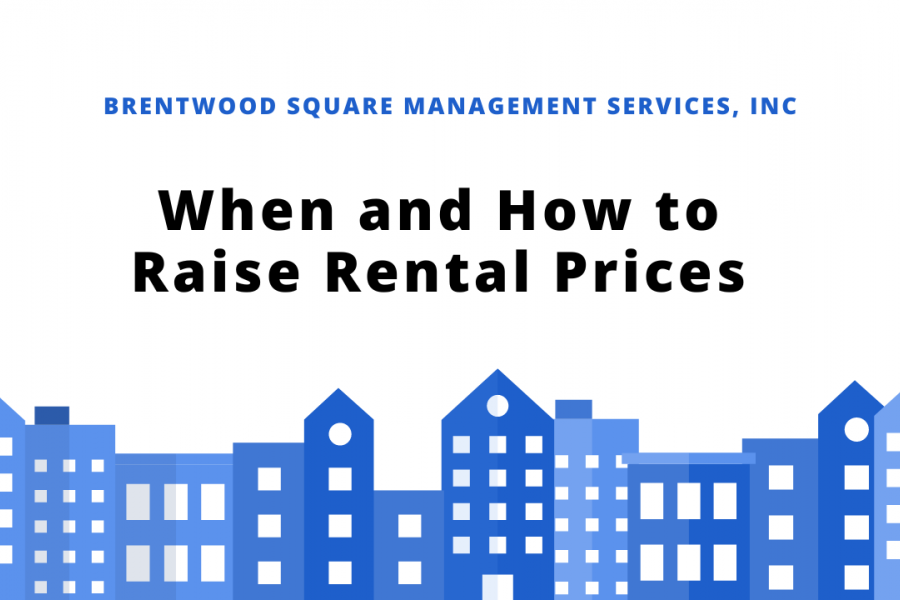
Owning housing rental property is an investment that needs careful strategy, and one critical aspect of this business is determining when and how to adjust rental prices.
Rent control laws may affect how landlords manage their housing, but the rent charged on a property reflects its value and impacts the return on investment.
By providing proper notice to renters, landlords can ensure a smoother transition when adjusting rent, while also maintaining housing standards that attract quality renters who are willing to pay for well-maintained properties.
This guide aims to equip property managers and landlords with the requisite insights on how a landlord raise rent responsibly, focusing on market conditions, legal considerations, and communication with tenants when a landlord raise rent.
Rising rental prices can sometimes be a sensitive subject, often evoking strong reactions from tenants. However, under the terms of the rental agreement, a landlord raising the rent is an inevitable part of managing a rental property.
Rent control laws may limit how much and how often a landlord can raise the rent, but when done properly, it can lead to improved cash flow. This helps ensure tenants can continue to pay rent while allowing for necessary housing maintenance and upgrades. Proper notice must be given to tenants in compliance with housing regulations, making sure both landlords and tenants are protected. Keep reading this article to learn more about housing laws and their impact!
Factors to Consider before Raising Rental Prices
Before implementing a new rent figure, it is crucial to assess various factors. A thorough analysis provides a solid foundation for justifying any rent increase and ensures that these changes align with the local rental market and the condition of the property.
Market Analysis

Understanding the dynamics of the local rental market is essential. The local rental market trends can reveal whether there's an increased demand for housing or an influx of new developments that could affect pricing.
Similarly, examining comparable rental properties in the area indicates how your property stands relative to others can underscore trends influencing rental demand, such as job market strength or population growth.
Property Analysis
A careful review of the property itself is also necessary. Assessing the condition and amenities of the property will determine if they justify a price hike. If you've incurred significant maintenance and renovation costs, recouping these expenses may necessitate a rent increase.
You should also consider tenant satisfaction and retention to determine whether an increase is feasible without risking occupancy rates.
Legal Considerations
You must be aware of any legal constraints before increasing rent, including potential court rulings that may affect rent adjustments. These include understanding the rental agreement terms, which may specify when and how you can change rent prices during a tenancy.
Additionally, you may need to provide proper notice before implementing any changes, ensuring that both the tenancy and building regulations are respected. Failure to comply with these rules could result in legal disputes or court involvement.
Rent control regulations may also apply to your property, limiting how much you can increase rent. Finally, determine the statutory notice requirements, which dictate how far in advance you must inform tenants of any changes.
When to Raise Rental Prices
It's important to choose the right time to change your rental rates so that your tenants aren't surprised or decide to move out. Pay attention to the market and your property to find the best time to raise the rent.

Market Conditions
When there are fewer rentals available and lots of people looking for them, it might be a good time to think about raising the rent. If the economy in your area is growing, with new jobs or infrastructure projects, that can also be a sign that it's okay to charge more for rent.
Lease Renewal Periods
Rent increases often happen during lease renewals, which is less surprising for tenants and feels like a natural part of the rental process. Giving plenty of notice gives tenants time to plan for the increase or decide if they want to stay under the new terms.
Property Upgrades
After regular property inspections, if you've made significant improvements like adding new appliances or renovating living spaces, you can consider raising the rent. It's important to communicate to tenants the value of these upgrades and how they improve their living experience.
How to Raise Rental Prices
Once you've deemed a rent increase appropriate, you must calculate the new rates and communicate the changes.
Determine the Increase Amount
Set a fair and competitive rent increase—neither so high as to dissuade tenants nor so low that it fails to reflect the property's market value and incurs costs. Some landlords, especially first-time landlords, like to raise the rent bit by bit over time. This can be easier for tenants to accept and can help you keep your income more steady.

Communicate with Tenants
Clear and transparent communication regarding rental price changes is essential in maintaining a good landlord-tenant relationship. It may help offer incentives or concessions, like property improvements or extended lease terms, to balance the impact of the increase.
Document Changes
It is essential to update lease agreements or contracts with any changes made to the rent in a documented manner. Notices of rent increases should be issued in writing to tenants, outlining both the amount and the effective date of the new rate.
Handling Tenant Reactions
Not all tenants will be happy to hear about a rent increase, so landlords need to handle these conversations delicately. Be ready to listen to their thoughts and calmly explain why the increase is happening, like pointing to market trends or property upgrades. Their input can give you helpful ideas about how to approach rent hikes.
Negotiation
It may be necessary to compromise between two opposing views or positions in order to reach a solution that satisfies both parties. Offering flexible payment options or adjusting the timing of the increase may alleviate concerns and foster a collaborative rather than confrontational atmosphere.
Last words
Raising rental prices means finding a balance between making money and keeping tenants happy. Landlords can justify rent increases by keeping an eye on the market, seeing how their property is valued, and talking openly with tenants.
Even though things like inflation and market changes can make it tricky, following these tips helps make sure rent adjustments are fair and successful. Keeping up with market trends, evaluating your property, and talking openly with tenants are key to long-term success in renting.
For personalized advice on when and how to raise rental prices, reach out to Brentwood Square Management Services, Inc. Our experienced team can offer tailored guidance to help you align your pricing strategy with market trends and legal requirements. Schedule a consultation today to maximize your property's return on investment while keeping your tenants happy.
